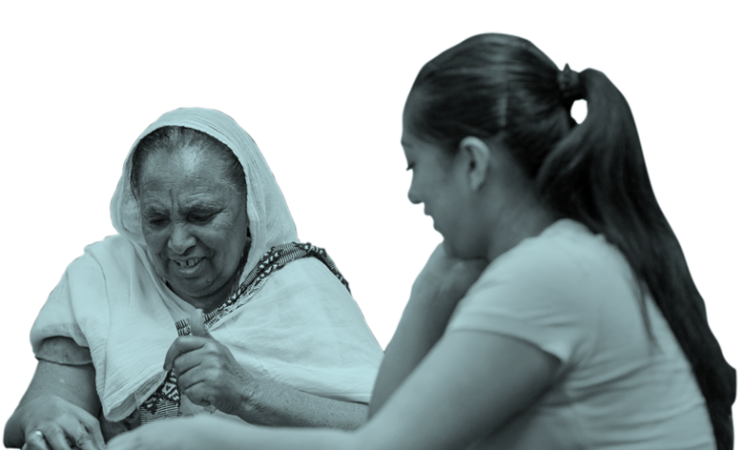Treating Learners with Unconditional Positive Regard
Many volunteers and teachers working with adult learners see one of the perks as being that there are fewer behavior problems, compared to working with children. However, behavior issues do occur in adult education classrooms. Learners may be chronically late, they may use their phones at inappropriate times, refuse to work with certain classmates or even get into yelling matches on rare occasions.
There are actions we can take to prevent these types of behavior problems by coming to agreement with learners on classroom expectations and holding learners accountable to them. But, sometimes learners may act out for understandable reasons related to high levels and stress and trauma. When these incidents happen, learners can come out on the other side with better outcomes when volunteers and teachers treat them with unconditional positive regard.
Unconditional positive regard is a term coined by psychologist Carl Rogers to describe an approach in psychotherapy in which the therapist treats the client with complete and total acceptance, no matter what they say or do. The result is that clients feel that they do not have to earn the care and positive regard of their therapist, they are unconditionally granted it. This aids in relationship building and trust.
We put unconditional positive regard into practice in the adult education classroom in a few ways:
- We can prompt learners to behave in desired ways by praising them when they behave within mutually-agreed upon classroom expectations. For example, “Thanks for taking that call out in the hallway,” or “I appreciate you working together, even though you haven’t always gotten along,” and “I know you prefer to work in a group and collaborate, so thanks for taking this time to do some independent study.” Taking this positive approach motivates everyone to meet and exceed expectations, not just those who are already doing so.
- We can also build classroom-appropriate relationships with learners to help grease the wheels when difficult times come up. Getting to know learners’ lives, their likes and dislikes and connecting with them on interests and hobbies humanizes both learner and educator, forming the foundation for smoother sailing over rough waters.
- We can also do our best to not play favorites. This is not always easy. Learners who come on time, stay focused and do as they are asked are appealing to educators. But, we must not place a value on learners based on what they do. We must value them all based on who they are. Do your best to find something to like about every learner you work with. Despite challenging behaviors, learners may offer comic relief at times, they may be bridge-builders between classmates, they might be creative thinkers or be particularly generous. Find, notice and point out those positive qualities in each.
Showing learners unconditional positive regard takes intentional effort, but it will pay off in the form of more satisfying learner-educator relationships, fewer classroom disruptions and better overall learner well-being. Try implementing one of the actions above, and see the change in the learners you work with.
For questions or comments regarding this Tutor Tip, contact Tutor Training Coordinator Meghan Boyle at [email protected].
References
Melito-Conners, T. (2024, January 19). Building a culture of unconditional positive regard. Edutopia. https://www.edutopia.org/article/supporting-students-affected-by-trauma
Cherry, K. (2023, April 3). Why therapists use unconditional positive regard with their patients. Verywell Mind. https://www.verywellmind.com/what-is-unconditional-positive-regard-2796005
Kohn, A. (2014, November 9). Unconditional teaching. Alfie Kohn. https://www.alfiekohn.org/article/unconditional-teaching/
Photo by Armin Rimoldi: https://www.pexels.com/photo/laughing-black-male-colleagues-clasping-hands-in-excitement-together-5304083/


